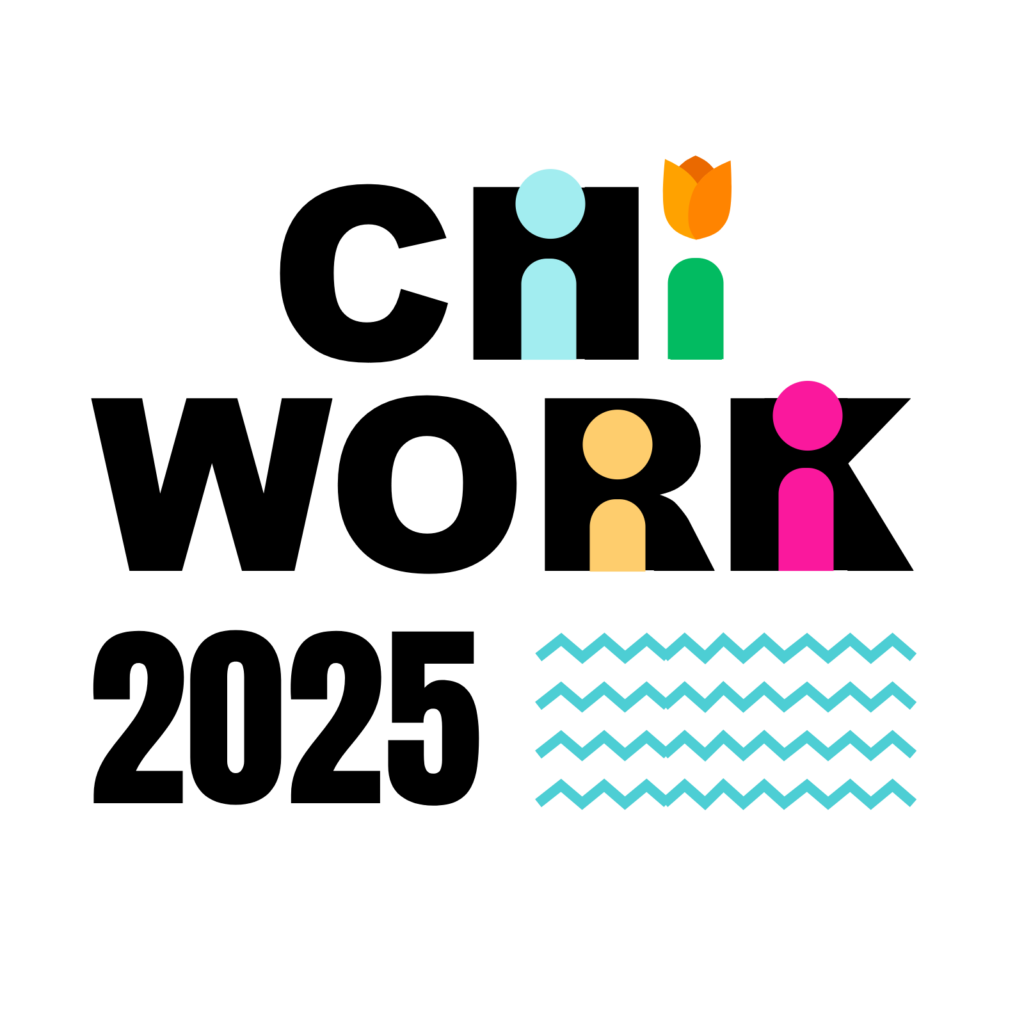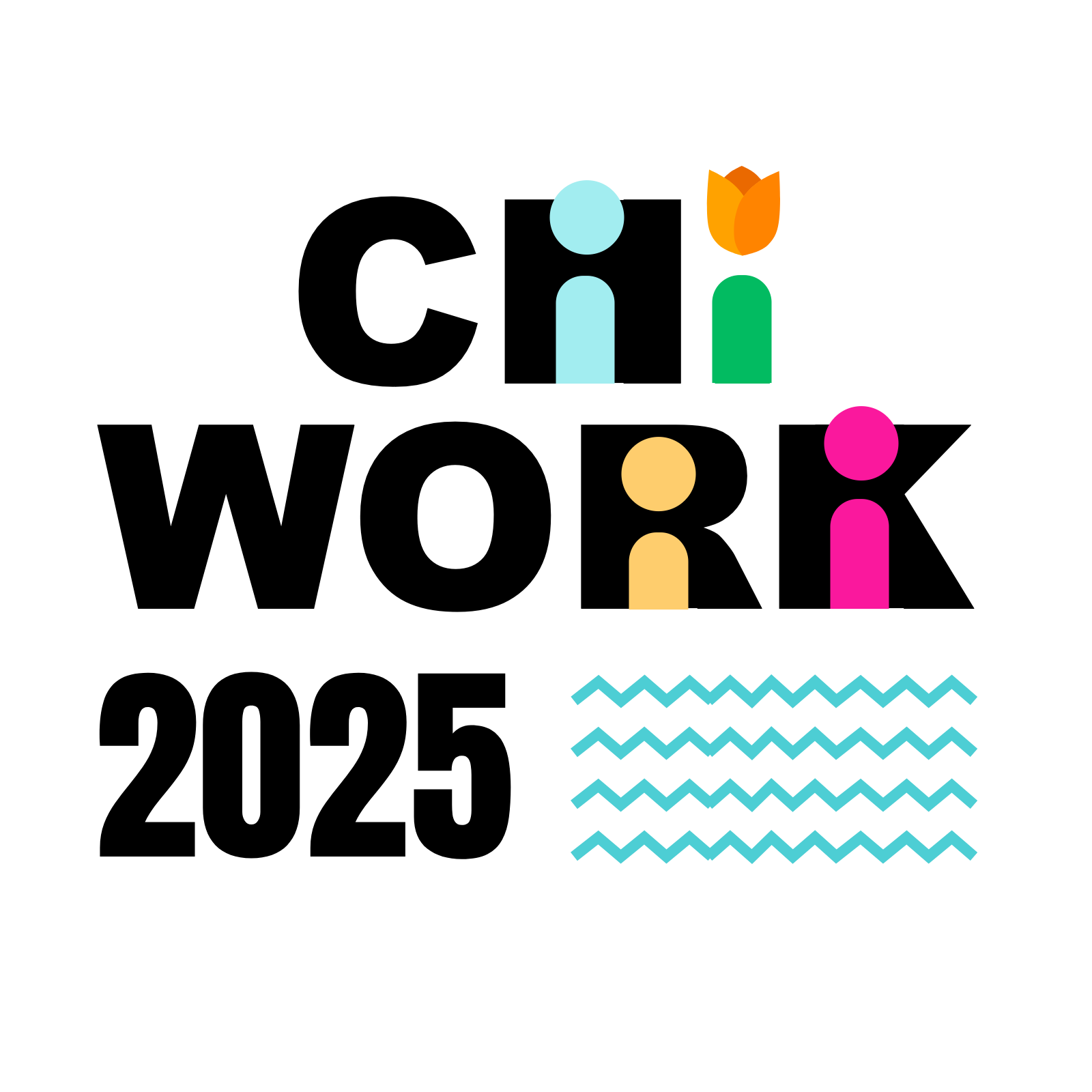Workshops are gathering places for attendees with shared interests to meet in the context of a focused and interactive discussion. These events offer opportunities to advance specific areas of research and a chance to find people who care about similar issues, questions, and research agendas — a great way to meet relevant people and build communities.
The workshops are organized independently by their organizers. Please see the websites of the individual events for detailed instructions on how to attend and submit position papers, etc.
Please note that the following list of workshops might include minor details that are subject to change. Please check this page (and the individual workshop pages) later for updates.
W1: Navigating Generative AI Disclosure, Ownership, and Accountability in Co-Creative Domains
Time: 9:00 – 13:00
Location: L017
Webpage: https://chiwork-aidisclosure.github.io/
Organizer: Hyo Jin Do (IBM Research), Molly Q Feldman (Oberlin College), Jessica He (IBM Research), Angel Hsing-Chi Hwang (University of Southern California), Seyun Kim (Carnegie Mellon University)
Abstract: The increasing integration of generative AI into work has amplified issues of disclosure, ownership, and accountability, including whether and how to acknowledge AI use, who owns AI-generated or co-created work, and who is accountable for risks. In response, governments, organizations, and researchers are introducing new policies, guidelines, and methods for enhanced transparency. However, the complex interplay between multiple stakeholders and technologies, coupled with growing AI agency, continues to spark debates about ownership and accountability of co-created work, leading to open questions about whether, when, and how to disclose and attribute human-AI co-created work. To address these emergent issues, this workshop aims to gather interdisciplinary researchers, practitioners, and experts to discuss key questions from law, technology, design, and HCI research standpoints, with the ultimate goal of promoting responsible generative AI use for work.
W2: The Future of Human-Robot Synergy in Interactive Environments: The Role of Robots at the Workplace
Time: 9:00 – 13:00
Location: L015
Webpage: https://www.hcilab.org/human-robot-synergy-workplace-2025/
Organizer: Jan Leusmann (LMU Munich), Pooja Prajod (Centrum Wiskunde & Informatica), Alex Binh Vinh Duc Nguyen (KU Leuven), Max Pascher (TU Dortmund), Andrew Vande Moere (KU Leuven), Sven Mayer (LMU Munich)
Abstract: The increasing integration of robots into workplaces raises critical questions about human-robot synergy in interactive environments. While robots are designed to enhance productivity and safety, their successful deployment depends on effective collaboration, trust, and seamless interaction with human workers. However, existing research has primarily focused on either technical capabilities or human-centered concerns in isolation, leaving a gap in understanding how robots can be meaningfully integrated into dynamic workspaces. In this workshop, we bring together experts from robotics, HCI, and work sciences to explore the future of human-robot collaboration at the workplace. This workshop aims to identify key design principles, ethical considerations, and practical challenges. The insights gained will inform future research and policy recommendations, shaping a future in which robots act not as mere tools but as cooperative agents that enhance workplace efficiency, well-being, and innovation.
W3: Paving the Way for AI that Supports Flourishing at Work
Time: 14:30 – 18:30
Location: L016
Webpage: https://sites.google.com/view/ai-for-flourishing-chiwork25/home
Organizer: Yoana Ahmetoglu (UCL Interaction Centre, University College London), Sowmya Somanath (University of Victoria), Carine Lallemand (Eindhoven University of Technology), Erin T. Solovey (Harvard-Radcliffe Institute and Worcester Polytechnic Institute), Duncan P. Brumby (UCL Interaction Centre, University College London), Anna L. Cox (UCL Interaction Centre, University College London)
Abstract: Artificial Intelligence (AI) is increasingly integrated into workplace environments. While AI has traditionally been optimized for productivity and efficiency, its broader impact on human flourishing remains less understood. This workshop will bring together researchers, designers, and industry practitioners to examine how AI can contribute to workplace flourishing, considering factors such as cognitive and emotional support, user autonomy, and long-term engagement. Through structured activities, participants will explore existing AI tools and research, generate new use case scenarios, and develop concrete research and design proposals. The workshop weaves together these insights and perspectives to encourage networking, collaborations and shape a research agenda that prioritizes human flourishing as a key objective in AI for work.
W4: The Future of Work in Mobility and Transportation
Time: 14:30 – 18:30
Location: L017
Webpage: https://www.cpjanssen.nl/CHIWORK2025Mobility/
Organizer: Christian Janssen (Utrecht University), Susanne Boll (University of Oldenburg and OFFIS Institute for IT), Andrew Kun (University of New Hampshire), Orit Shaer (Wellesley College)
Abstract: This workshop brings together researchers and practitioners interested in the future of work and mobility and transportation. Transportation used to be a means to get to and from work. However, three trends give grounds to reconsider its intersection with work: (1) People are changing where they work, including when on the move (e.g., train, plane, car, walking), (2) Those for whom transportation was part of their job are experiencing changes due to the availability of more technology (e.g., cab/truck/train drivers, first responders, delivery couriers), and (3) People who work to ensure that others keep moving (e.g., urban planners) face more diverse types of transportation and technical support that changes their work. In this workshop, we will exchange ideas with participants interested in the intersection of work and mobility and transportation. The goal is to stimulate community-driven bottom-up initiatives about how (the future of) work reshapes the mobility and transportation domain.
W5: Enhancing Performance or Hijacking Attention? A Workshop on the Use of AI in Workplace Environments
Time: 14:30 – 18:30
Location: L015
Webpage: https://tinyurl.com/workplaceai2025
Organizer: Ambika Shahu (TU Wien), Philipp Wintersberger (IT:U Linz), Dinara Talypova (IT:U Linz), Alice Vitali (TU Delft), Charlotte Kobiella (Center for Digital Technology and Management), Tilman Dingler (TU Delft)
Abstract: In today’s technology-driven workplace, digital distractions and frequent task switching significantly impact worker productivity and well-being. With the rapid integration of AI tools and Large Language Models (LLMs), workers face new challenges in managing their attention between human cognition and AI-assisted workflows. This workshop will explore the dual nature of AI tools, examining their potential to enhance productivity as well as the risk of fostering “metacognitive laziness” and digital distraction. Through collaborative design activities and discussions, participants will examine strategies for developing attention management systems that support mindful task-switching between human and AI-driven work. We will focus on designing workplace initiatives that leverage AI capabilities while preserving deep work and cognitive well-being. The workshop aims to generate practical insights for creating sustainable work practices in an AI-augmented workplace.

